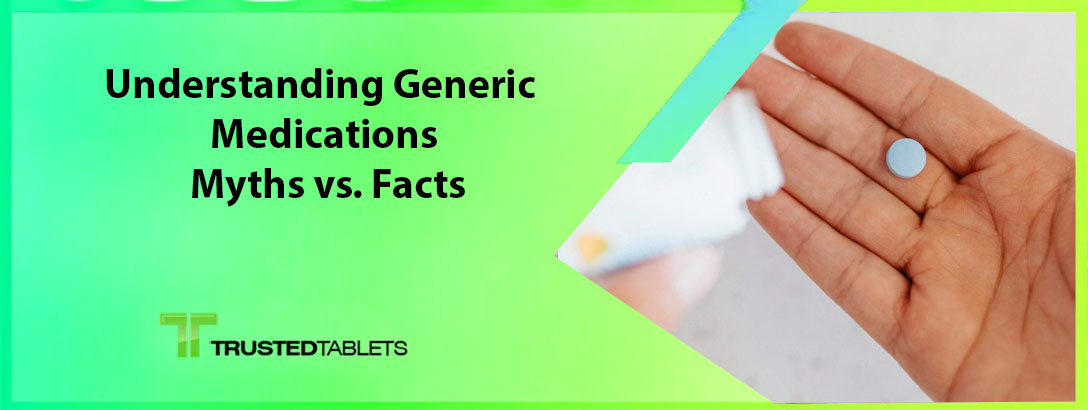Generic medications are often misunderstood, leading to a range of myths and misconceptions. Let’s clear up the confusion by debunking some common myths and presenting the facts.
Myth 1: Generic Medications Are Less Effective
Fact: Generic medications contain the same active ingredients as their brand-name counterparts and are required by the FDA to have the same quality, strength, and effectiveness. The only differences are the inactive ingredients, which do not affect the therapeutic effect.
Myth 2: Generics Are Not as Safe as Brand-Name Drugs
Fact: Generic medications undergo rigorous testing and must meet the same strict standards of safety, efficacy, and quality as brand-name drugs. The FDA closely monitors generic drugs to ensure they are safe for public use.
Myth 3: Generics Are Made with Lower Quality Ingredients
Fact: The active ingredients in generic medications are identical to those in brand-name drugs. Generic manufacturers must prove that their product is bioequivalent to the brand-name version, meaning it delivers the same amount of active ingredients into the bloodstream in the same time frame.
Myth 4: Generics Cause More Side Effects
Fact: Since generic medications contain the same active ingredients as brand-name drugs, they have the same potential for side effects. The inactive ingredients may differ, but these typically do not cause adverse reactions for the vast majority of patients.
Myth 5: Generic Drugs Are Not Available for All Medications
Fact: While it’s true that not every brand-name drug has a generic equivalent, many do. When a brand-name drug’s patent expires, other manufacturers can produce generic versions, which are then approved by the FDA. Over time, more generics become available as patents expire.
Myth 6: Generics Are Harder to Find
Fact: Generic medications are widely available at pharmacies and often offered as a first option by healthcare providers and pharmacists. Many insurance plans also encourage the use of generics because they are more cost-effective.
Myth 7: Generics Are Just as Expensive as Brand-Name Drugs
Fact: One of the main advantages of generic medications is their lower cost. Generics are typically 80-85% cheaper than brand-name drugs because manufacturers do not have to invest in the initial research, development, and marketing that the original drug required.
Myth 8: Switching to a Generic Can Be Confusing
Fact: Pharmacists are trained to help patients understand their medications, whether brand-name or generic. If you have any questions or concerns about switching to a generic, your pharmacist can provide you with the necessary information and reassurance.
Conclusion
Generic medications are a safe, effective, and cost-efficient alternative to brand-name drugs. Understanding the facts about generics can help you make informed decisions about your healthcare and take advantage of the benefits they offer. Always consult with your healthcare provider or pharmacist if you have any questions or concerns about your medications.


